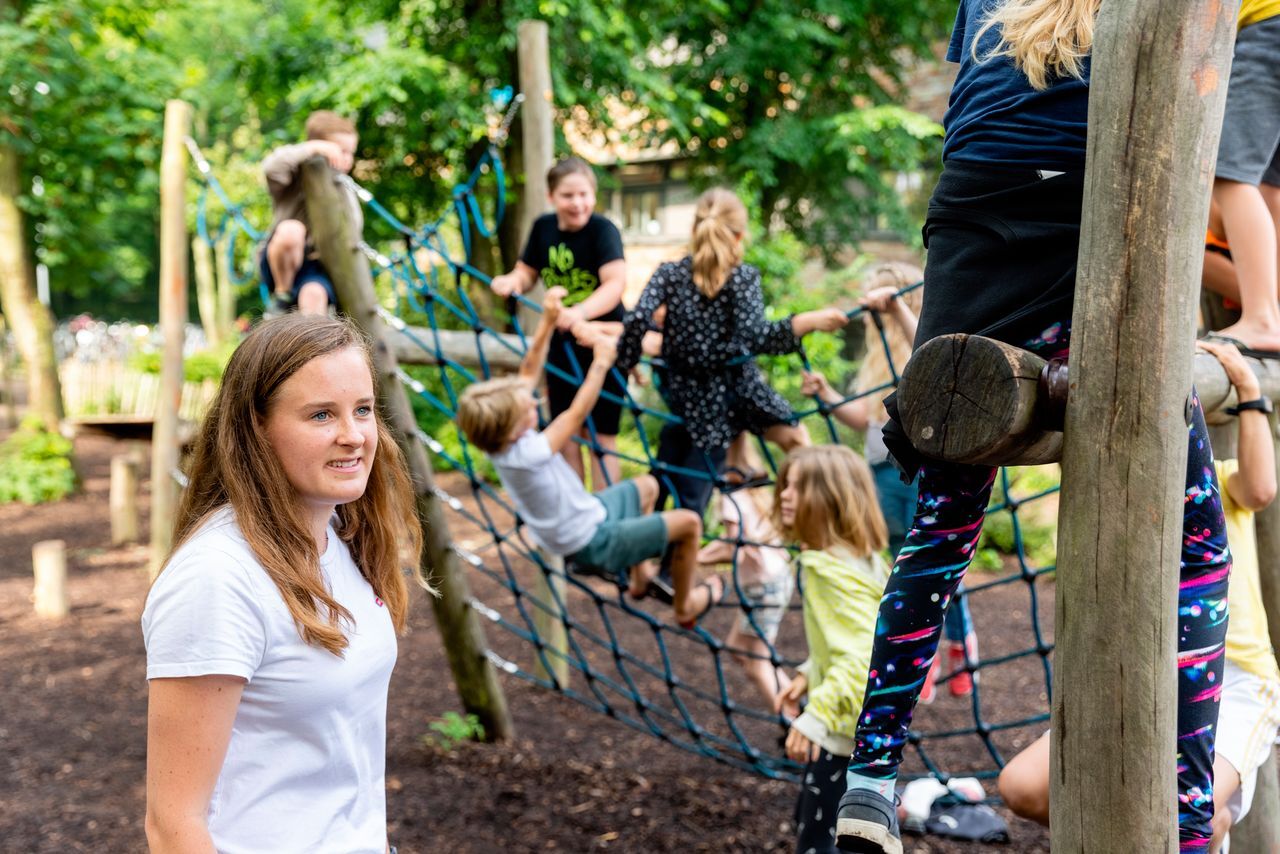Play-friendly cities
More and more children in the Netherlands are overweight, don't exercise enough and have poor motor skills. For children to become healthy and fit adults, it is important to encourage them to exercise more.
Centre of Expertise Health Innovation
Centre of Expertise Governance of Urban Transitions

More and more children in the Netherlands are overweight, don't exercise enough and have poor motor skills. For children to become healthy and fit adults, it is important to encourage them to exercise more. One way to achieve this is to better facilitate outdoor play. Playing outdoors not only has a positive effect on physical and mental health, but also on motor, cognitive and social skills.
To capitalise on these benefits, it is important to gain more knowledge about where, how and with whom children play outdoors, as well as how they perceive and experience different playgrounds. That is why The Hague University of Applied Sciences and the Amsterdam University of Applied Sciences have started a study on outdoor play in Delft (Tanthof), The Hague (Morgenstond) and Amsterdam (Kolenkitbuurt/Overtoomse Veld).
Increasing the enjoyment of playing
By conducting qualitative research with and from the perspective of children, we want to answer the question of which factors contribute to increasing the enjoyment and duration of play time for primary school children (6-12 years). We test these insights against the ideas and current policy instruments within the municipalities. Then we want to provide tools for designing, programming and managing play-friendly cities.
Research
The study consists of several components including:
- In the three districts, we observe a) who is playing outdoors, b) where children play outdoors, c) what activities they are doing and, d) with whom the children play outdoors.
- At some of the frequently used playgrounds, the children's play behaviour is observed more extensively to gain greater insight into how children play there, and with which play attributes.
- To gain more insight into where and why children play, children are asked to take pictures of various places in their neighbourhood. These photos then form the basis for group discussions about their wishes, perceptions and experiences.
- Children are also taken on a walk through the neighbourhood, where they determine the route, tell stories and are asked about their living environment and experiences.
- We are creating an assessment framework to determine the potential use of playgrounds.
- We analyse policy documents and interview municipal officials to gain a better understanding of their vision and working methods.
- We are organising meetings with the researchers and municipal officials to discuss the interim research results and to look for action perspectives to achieve more play-friendly cities.
Collaboration
The Play-Friendly Cities project is a collaboration between various knowledge institutions, municipalities and social organisations. Three research groups are participating in the study on behalf of THUAS: the Healthy Lifestyle in a Supporting Environmentresearch group, the Metropolitan Developments research group and the Public Governanceresearch group. From the Amsterdam University of Applied Sciences the Co-ordination of Metropolitan Issues research group and the Youth Care research group are involved. See the overview of all participants below.
Universities of applied sciences and research universities:
The Hague University of Applied Sciences
Amsterdam University of Applied Sciences
Windesheim University of Applied Sciences
Utrecht University
Delft University of Technology
Municipalities:
Municipality of Amsterdam
Municipality of Delft
Municipality of The Hague
Other organisations:
Jantje Beton
IVN Natuureducatie
Platform Stad en Wijk
Child in the City Foundation
This research is co-funded by Regieorgaan SIA, part of the Netherlands Organisation for Scientific Research (NWO).
Duration
This project runs until December 2024.
Contact
Team members involved from THUAS are:
Gerben Helleman
[email protected]
Sanne de Vries
[email protected]
Karlijn Sporrel
Stephan van Berkel
Bernell Herder
Christine Bleijenberg
Katja Rusinovic
Henno Theisens
Bruno Koopmans